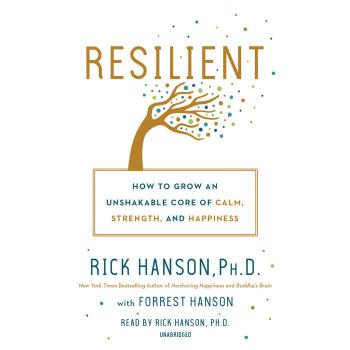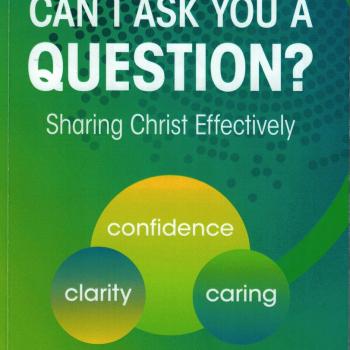Abba’s Child by Brennan Manning
Abba’s Child by Brennan Manning is a wonderful look into the love of God. The subtitle: The cry of the heart for intimate belonging, tells us very openly what Manning wants to achieve with this work. Manning takes us on a journey to this intimate belonging and the way to achieve it. His point is that God loves us and we should enjoy that love intimately. Manning describes his journey in the first chapter entitled “Coming Out of Hiding,” sharing how difficult it was for him to discover the intimacy that can be found in God’s love. Then Manning describes “The Imposter” in the second chapter. This chapter alone is worth the purchase of the book. He describes in this chapter how we have allowed ourselves to be loved by the wrong things.
Manning contrasts this with “The Beloved” in the third chapter, where the author makes the proper claim of our purpose (34): “God created us for union with Himself. This is the original purpose of our lives. God is defined as love (1 John 4:16).” Brennan shows that the best way to develop this love relationship (36): “The indispensable condition for developing and maintaining the awareness of our belovedness is time alone with God,” Solitude is the way to grow our love relationship with God. Manning’s illustration of the hurried executive and the hermit is an excellent example of the need for solitude (38-39).
In the next chapter, “Abba’s Child,” Manning explains that the heart and soul of God is compassion and tenderness (46-47). In this chapter, Manning seeks to provide one possible Christian posture to the homosexual community (52-53). Manning doesn’t state it, but I believe he would say that while homosexuality is a sin, it is a sin like any other sin. He believes that as God’s children, we should not be homophobic. Instead of the “anything goes” morality of the Left, or the sanctimonious moralism of the Right, Manning suggests a third option. This third option is God’s Word alone and it leads to indiscriminate compassion (56-57).
In the fifth chapter, known “The Pharisee and the Child,” Manning contrasts how we live a fake life while wanting to be genuine. He defines how a Christian can be a Pharisee, through viewing the Bible as a manual of directions instead of a love story (59), and the use of legalism (62). Pointing back to the chapter about “The Imposter,” Manning names the Pharisee as a “spiritual terrorist” and a religious imposter (66). The two tell-tale signs of a Pharisee are: (1) He admires himself, and (2) he despises others (67). The Pharisee is the fake, and the Child is my true self (69) – who exhibits all of the positive qualities which God wants us to show (76).
In the sixth chapter, Manning explains the value of “Present Risenness.” He explains that Christians usually think of the resurrection as past or a future event. He suggests that both of these approaches limits the presence of Christ in our lives to another time period. The alternative is to consider the resurrection as what Manning calls a “present risenness” (81). We should see the power of the resurrection during both good and bad days. This view of life helps us cope with the difficulties of life, helps us deal with tragedy, and helps us to see that everything in life has significance (82-89). An awareness of present risenness allows us to better share the Gospel (94) and it is linked to recovering our passion as Christians (95).
Manning links the sixth and seventh chapter entitled “The Recovery of Passion,” by sharing the problem that Manning calls the agnosticism of inattention.” As Christians, we lose our passion for Jesus Christ because so many things crowd out the voice of God in our lives (95, 100). In the seventh chapter, Manning defines passion, and how to recover it. When a Christian leans on Jesus and His love, he learns primary spirituality. However, most Christians have “derivative spirituality.’ We borrow from someone else’s spirituality when we should learn by leaning on Jesus for our faith (106-107).
Manning continues in the eighth chapter describing “Fortitude and Fantasy.” He explains that for people who want to stand up for Jesus, they will experience a “poverty of uniqueness” (117-119). He advocates for a holistic view of Christianity by explaining that a Christian is not just a Christian by what one does, or says, or is, but also by what one has (120-125). He explains that we must live out our faith by doing. Manning is not advocating a works salvation. Instead, he stresses the importance of the Christian’s actions which define one’s faith. You are Christian not just by what you have, what you say, or what you believe, but also by what you do. He appeals to Luke 12:37 and the fact that Jesus was a “doing” servant/God. “Jesus remains Lord by being a servant” (123).
Manning explains that we will only be able to follow Jesus with our entire life only when we lean onto Jesus and listen to “The Rabbi’s Heartbeat.” In the concluding chapter, Manning summarizes five responses to the love of God (133-134) and then follows that up with four ways to listen to the heartbeat of Jesus (145-148). He concludes the book by saying that the more you learn about Jesus, the more you learn about yourself (148), effectively tying personal growth to spiritual growth.
The book includes a study guide and includes an extensive endnotes. I personally enjoyed reading this book. Manning effectively speaks to the emotional realities in my own spiritual journey. I was quickly able to identify the impostor, the pharisee, the child and the beloved in my own life. Essentially, Manning calls for a Christian to continue developing his personal walk with Jesus Christ. This essential relationship needs to be cultivated. But what makes Abba’s Child a great resource is the recognition that God wants a relationship with me. God wants to be your Father. He wants to spend time with you. He wants you to lean on Him, and to seek His heart. This is not a book that prescribes a ritual for that relationship. Instead, Manning provides the emotional value for a Christian to build that relationship. I would highly recommend this book for Christians who think that their spirituality is very dry, difficult, and falling on deaf ears. This book will help you listen to God again.
Disclosure of Material Connection: I received this book free from the author and/or publisher through the Tyndale House Publishers blogging book review network. I was not required to write a positive review. The opinions I have expressed are my own. I am disclosing this in accordance with the Federal Trade Commission’s 16 CFR,Part 255.













